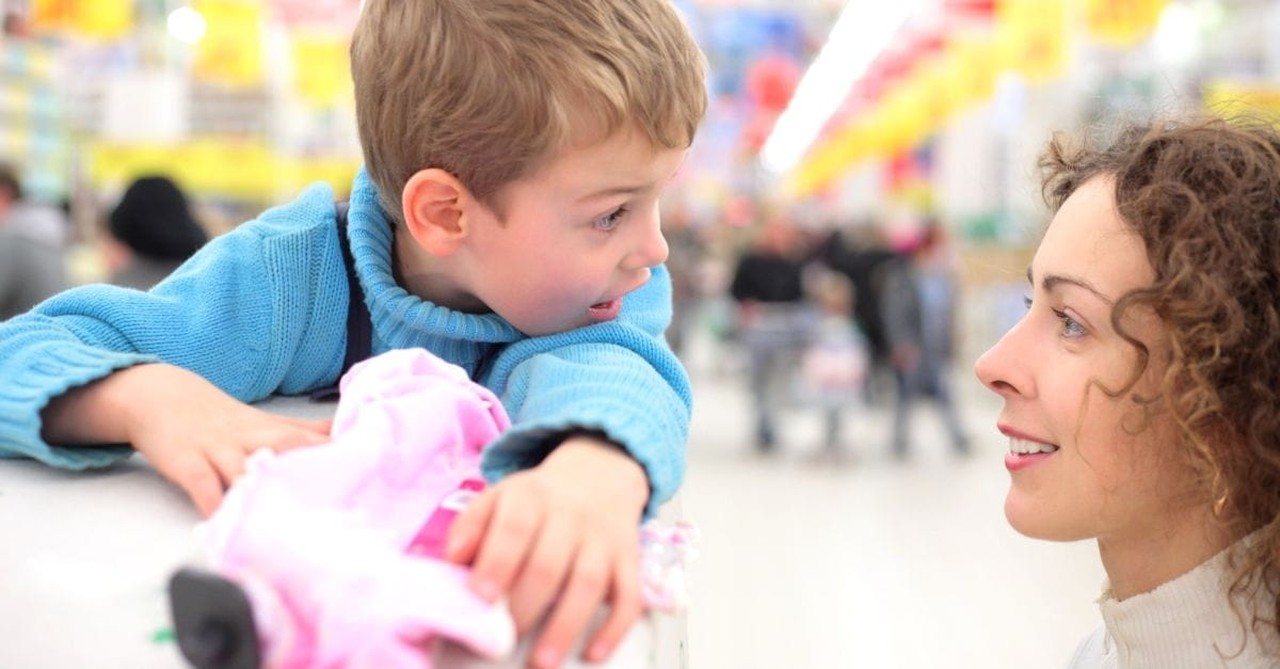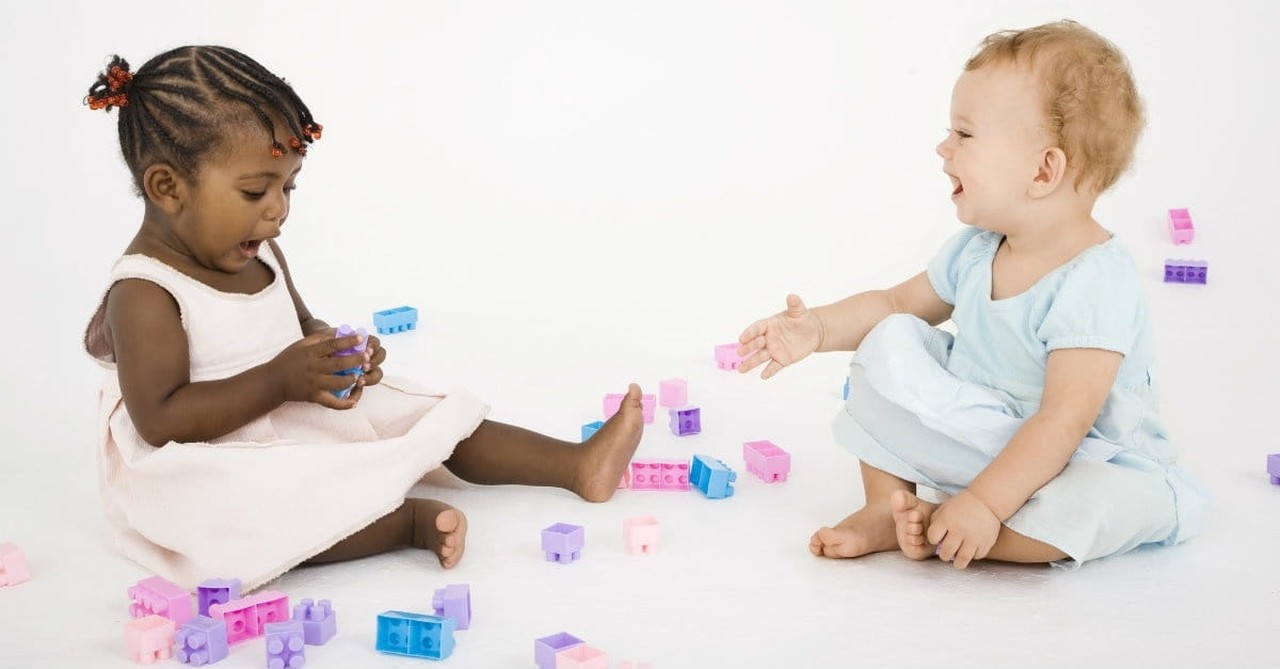10 People Your Child Needs in His Life Other than You

When your child leaves your home, what kind of person do you hope they’ll be?
Your answer will determine—or should determine—how you parent. As my pastor (who’s also my husband) likes to say, “The best way to parent is with the end goal in mind.”
Luke 2:52 says, “Jesus grew in wisdom” (mentally), “stature” (physically), “in favor with God” (spiritually) “and man” (socially). Healthy children mature in all four areas of life.
Raising a child is a monumental undertaking. The sheer scope of the task requires more than any one person can provide. The most influential person in a child’s life is his or her parent(s), but in order to develop an emotionally, socially, physically, and spiritually healthy child, it takes more than you; it takes a community around you and your child.
Here are 10 people your child needs in his or her life, other than you.
Photo Credit:©Unsplash/DuyPham
1. An Encourager

1. An Encourager
SLIDE 1 OF 10
Everyone wants an encourager in his or her life, but a child requires an encourager. A child’s sense of self, as well as his or her place in the world, is formed largely by whether or not they receive encouragement during their formative years. But not just any type of encouragement will do.
People who spout generic platitudes like, “you can be anything you want to be, if you work hard enough” won’t be sufficient. Your child needs a person who notices, and champions, their unique giftedness. An encourager speaks life into your child’s abilities, character, and possibilities. An encourager boosts your child’s confidence, and gives your child freedom to try new things. An encourager believes in your child, even when he or she faces temporary setbacks.
Who is an encourager in your child’s life? If your child doesn’t have one, be one. Then pray for other encouragers to come into his or her life.
Photo credit: ©Thinkstock
2. A Challenger

2. A Challenger
SLIDE 2 OF 10
On the opposite end of the spectrum, but equally vital for your child’s emotional, personal, and spiritual health, is a challenger. A challenger motivates your child to do more, try more, and be more. A challenger will stretch your child beyond their comfort zone, which means challengers won’t always be his or her favorite person--initially.
A challenger could be a teacher who expects just a bit more effort than your child is used to giving, or a coach who demands a little more commitment than he or she has previously devoted. Whatever their position, a challenger raises the bar. They don’t make things easy, but they do help your child grow.
This is why parents must resist the urge to rescue their child from a challenger. Is there a difference between a challenger and a critic? Of course. But don’t be too quick to step in just because your child complains, or cries “not fair!” If you do, you may thwart the progress they can make under the tutelage of a challenger.
Photo credit: ©Thinkstock
3. A Spiritual Mentor

3. A Spiritual Mentor
SLIDE 3 OF 10
Parents everywhere agree on the importance of a good teacher. They pay big bucks for a good coach, music teacher, or academic tutor. We did, and I’ll bet you do, too. But far too many parents forget about the necessity of a godly spiritual mentor.
Case in point: most parents wouldn’t dream of having their child miss several weeks of soccer practice or dance lessons, but the same parents don’t give missing church for weeks a second thought. Is it any wonder we’ve raised a generation of kids who believe God has little relevance to their life?
They didn’t come to this conclusion in a vacuum.
To become a whole person, your child needs a godly guiding influence in his or her life (someone in addition to you). It could be a Sunday school teacher, a youth leader, or a godly grandparent. A spiritual mentor is anyone who guides your child to love and obey God. Every child—yours included—needs at least one.
Photo credit: ©Thinkstock
4. A Positive Opposite-Sex Role Model

4. A Positive Opposite-Sex Role Model
SLIDE 4 OF 10
Children learn best not by what they’re told, but by what they see and experience up close and personal. If you have a daughter, she needs to see strong, godly, kind men. If you have a son, he needs to see strong, godly, kind women.
Your child’s interaction with people of the opposite sex will affect how they view relationships, commitment, gender, and their own worth.The importance of providing positive opposite sex role models can’t be overlooked or underestimated.
How do you make this happen, especially if your immediate or extended family doesn’t provide the positive role model your child needs? Find a church filled with loving people. Befriend healthy, loving families or individuals who can be a role model for your child. Choose your friends based on what kind of influence (positive!) they will be in your child’s life.
Photo credit: ©Thinkstock
5. Positive Same-Sex Role Models

5. Positive Same-Sex Role Models
SLIDE 5 OF 10
Positive same-sex role models are just as important as positive opposite-sex role models. Why? Because boys learn to be emotionally, spiritually and relationally healthy men in the company of emotionally, spiritually and relationally healthy men. Girls learn to be emotionally, spiritually, and relationally healthy women in the company of emotionally, spiritually, and relationally healthy women.
Your child needs positive role models they can observe, interact with, and emulate. It’s not enough to admire someone from afar. Make sure your child rubs shoulders with someone of his or her gender that embodies the type of person you hope your child will become. This can be an older teen, a young adult, or even a neighbor, teacher, or coach. Maybe you’ll want to introduce your child to a person who is passionate about your child’s passion. Let your child see how they do life. Lifelong lessons are caught, not taught.
Photo credit: ©Thinkstock
6. A Loyal Friend

6. A Loyal Friend
SLIDE 6 OF 10
When several of our daughter’s closest friends moved away, she found herself in need of a new friend group. Each night I’d kneel by her bed and pray the same prayer: “God, please give Kylie a strong Christian friend, who is really fun, too!”
Why did I make this an ongoing prayer for my child—especially since she was surrounded by a loving Christian family? Because every child needs a loyal friend. Your child—like mine—needs someone outside the family who will love, accept, appreciate, and enjoy them, for them.
Childhood friendships are the training ground for life. We learn to navigate differences, share our secrets, work through conflicts, accept one another’s quirks, and enjoy each other’s company in friendship.
Wise parents set the stage for friendships to develop, but they don’t micromanage them once they do. Allow kids to work through the inevitable ups and downs of childhood friendships. Not all friends will be equally loyal to your child, and that’s okay. Resist the temptation to fight your child’s battles; instead, equip your child to navigate friendships with wisdom.
A loyal friend is a rare find—one your child needs. If he or she doesn’t have a loyal friend, pray for one. Make sure your child knows that the best way to have a friend is to be a friend. And just in case you’re wondering, God answered my prayers for Kylie. He sent not one, but two strong Christian friends, who are really fun, too. They are still friends to this day.
Photo credit: Unsplash
7. An Opposite or Different Person

7. An Opposite or Different Person
SLIDE 7 OF 10
In all likelihood, your child will gravitate toward people most like him; however, your child’s character formation depends on his ability to interact with people who are different from him.
Differences can be obvious or subtle—both kinds are important. Obvious differences include people of a different race, socioeconomic level, country, religion, or even something simple, like someone who eats different foods. Differences can also include people with different abilities, passions, temperaments, or habits.
If you have more than one child, you might even be lucky enough to have a family full of “different” people! Although sharing life with people who are different can be a bit crazy at times, if seen with the proper perspective, it can actually be a blessing for your child’s development.
Photo credit: ©Thinkstock/Jupiterimages
8. A Grandparent

8. A Grandparent
SLIDE 8 OF 10
If your child is blessed with grandparents, be grateful! A loving grandparent is one of the most important people your child needs in their life, other than you. A grandparent has the wisdom and experience to know what’s important in raising a child, and what’s not so important. They will love your child in a way no one else can. A grandparent listens to things a parent will not, laughs at things a parent might not, and gives in a way a parent should not (ice cream for breakfast, anyone?)
A grandparent, however, doesn’t have to be biological. Your child can benefit from any older, wiser person who takes the time to pour into your child’s life. If your child doesn’t have a godly, loving grandparent, befriend an older neighbor or the fun-loving retired couple you’ve always admired at church.
Photo credit: ©Thinkstock/YakobchukOlena
9. A Teammate

9. A Teammate
SLIDE 9 OF 10
Even if your child isn’t into athletics, they need a teammate in their life. A teammate is any peer who works with your child to achieve a common goal. Teammates can be found on athletic fields, of course, but they can also be found in clubs, school project groups, bands and orchestras, school plays, and vocal groups.
When your child learns to function as part of a team, she learns to put the needs of the group above her own; she learns the importance of giving her best for the good of the team; she learns to work side by side to accomplish something that could not be achieved in isolation. Teammates learn to depend on each other, appreciate each other, and work with each other—all essential qualities for developing character in the heart of a child.
Photo credit: ©Thinkstock
10. A Person to Help

10. A Person to Help
SLIDE 10 OF 10
Equally important to having people who help your child is having people your child can help. You won’t need to look far to find someone your child can help; they could be as close as a younger sibling, a sick or disabled family member, a less experienced peer, or a neighbor who could use a helping hand. Give your child the opportunity—and the privilege—of helping others as a way of life.
Finding people to help is especially important for youngest or only children who might become accustomed to having others attend to their needs, rather than helping meet the needs of others. Helping is one of he most important ways our child can grow in wisdom, stature, favor with God, and with man.
Donna Jones is a national speaker who’s shared God’s Word and God’s love with folks in 20 states and on four continents. She’s a pastor’s wife and mom to three young adult kids, who frequently sit on her kitchen counter, just to chat. Donna is the author of several books, including Seek: A Woman’s Guide to Meeting God, and Taming Your Family Zoo. Find her books and resources at www.donnajones.org, on twitter, or on Instagram.
Photo credit: ©Thinkstock
Originally published October 12, 2018.







